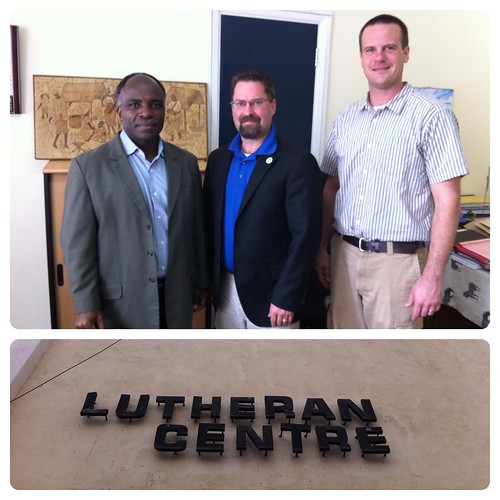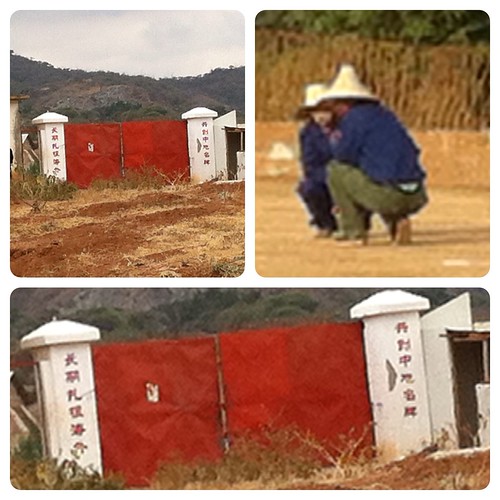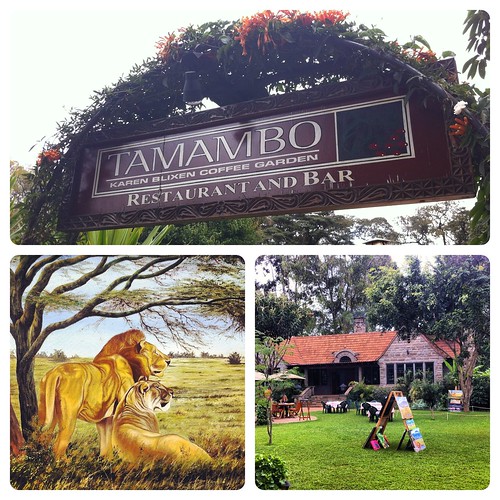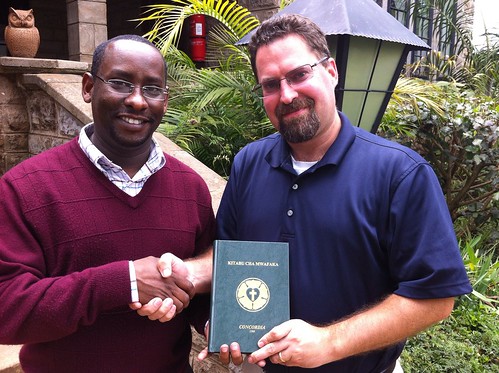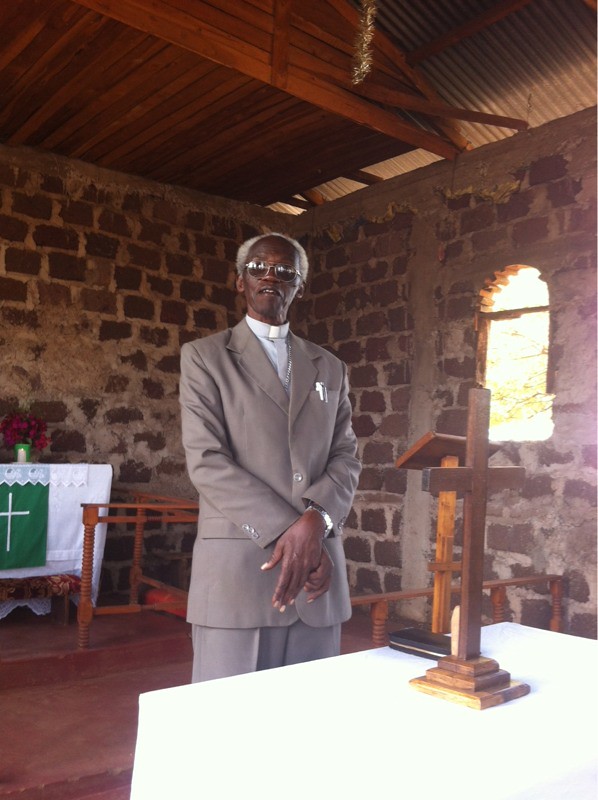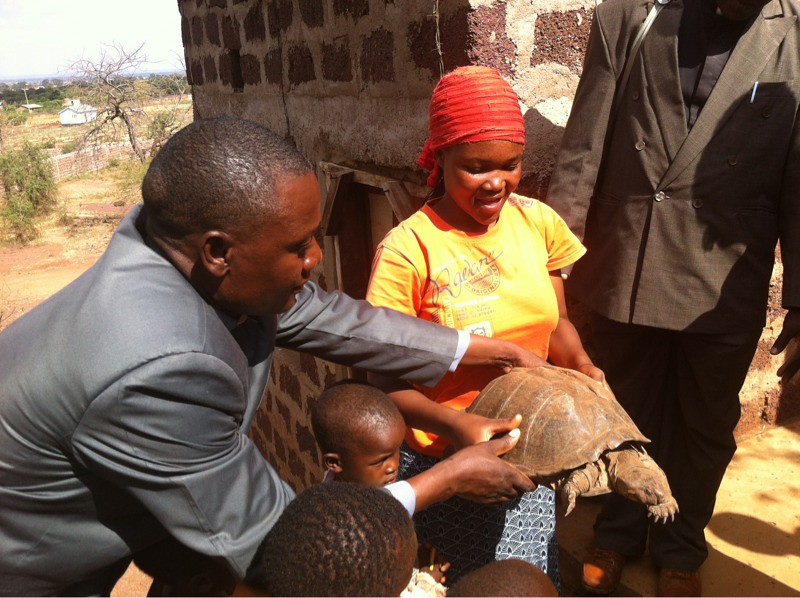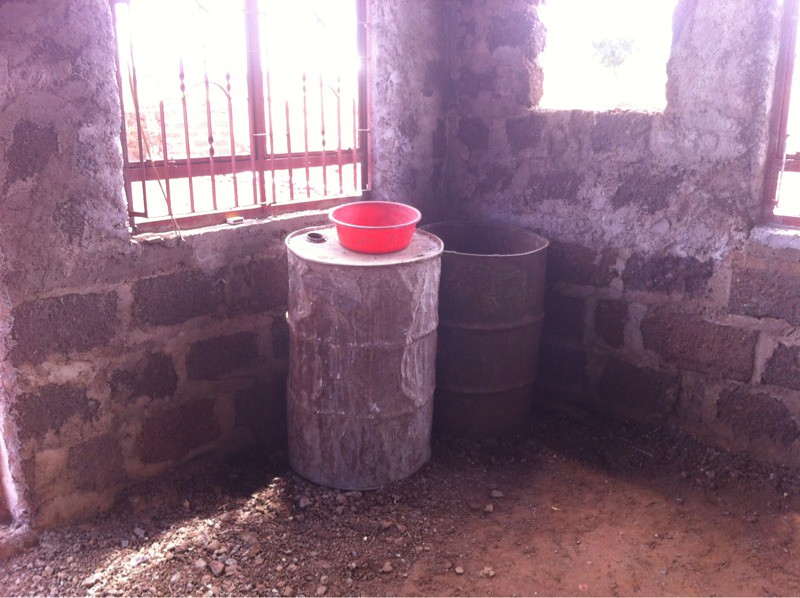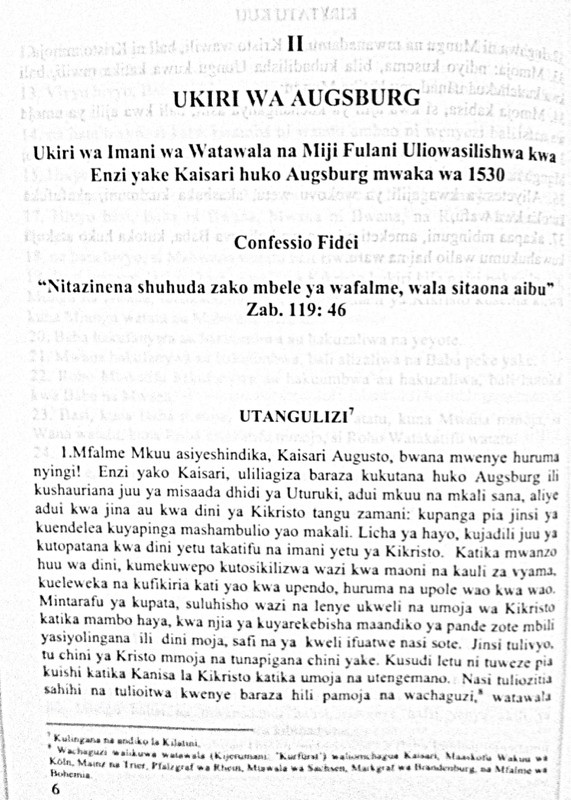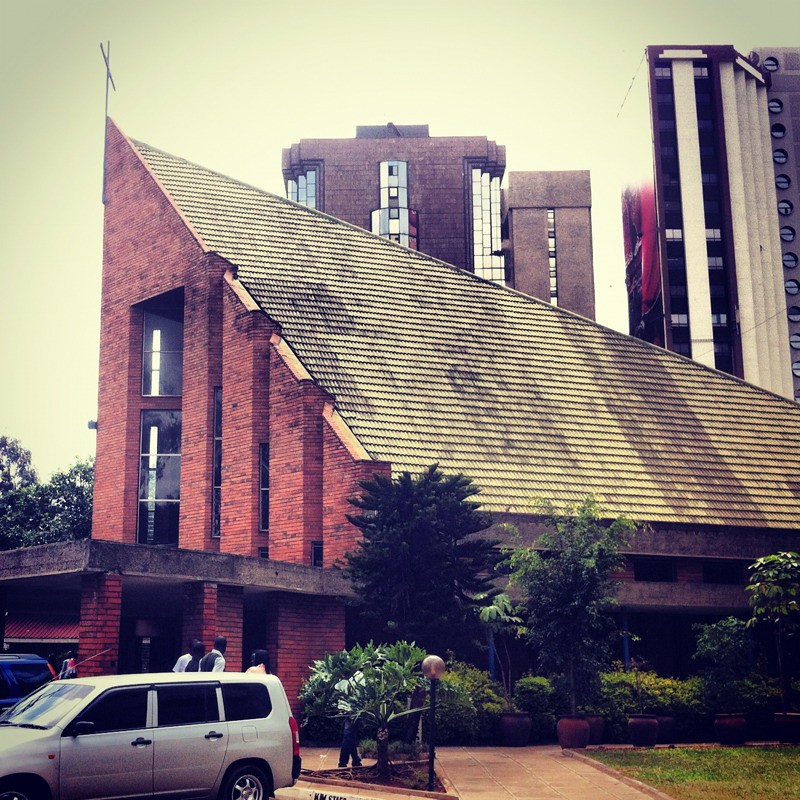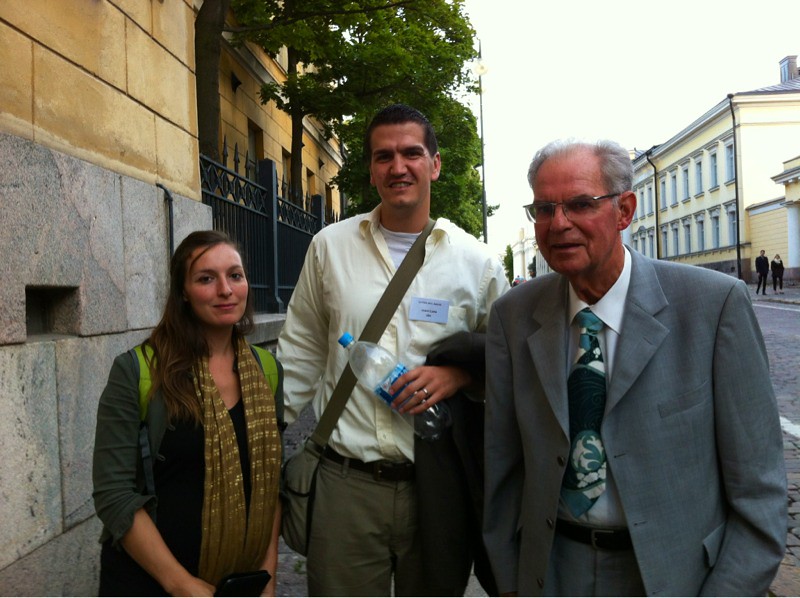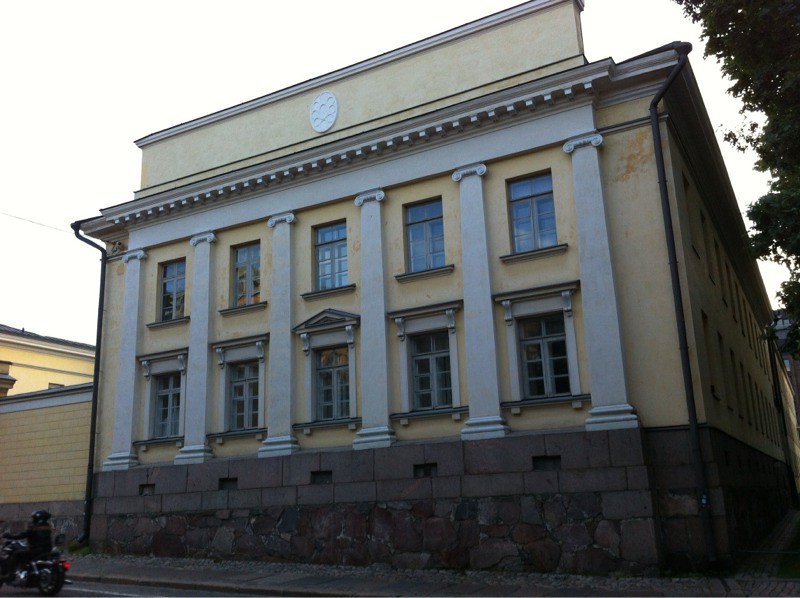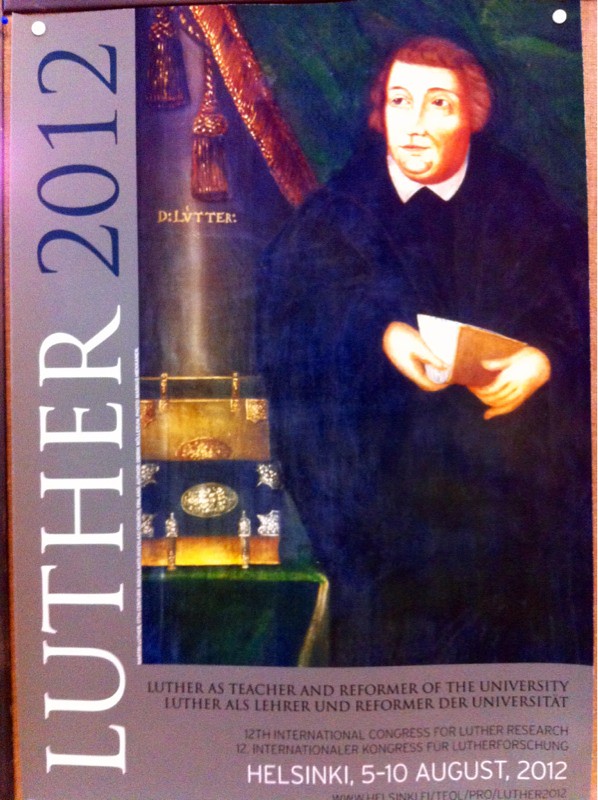Yesterday, we began the drive back from Moshi, Tanzania, to Arusha, Tanzania, back to Nairobi, Kenya. The scenery changed from the foot hills of Kilimanjaro, to the Mara / Serengeti which was very dry, to the hills of Nairobi.
In Arusha, Tanzania, we stopped at the Lutheran Centre, the headquarters of the Evangelical Lutheran Church of Tanzania (ELCT), to pay our respects to the leadership there, and to inform them that the Lutheran Church - Missouri Synod (LCMS) and the Lutheran Church of East Africa (LCEA) were in discussions with one another. Bishop Alex Malasusa was not in Arusha when we visited. In fact, he was headed to Moshi, from where we just came. In Moshi, we did have an opportunity to meet with Rev. Ambele Mwaipopo, who is in charge of Mission and Evangelism for the ELCT. Mwaipopo also is responsible for ecumenical dialogs. In Arusha, we met with Brighton Killewa, the Secretary General of the ELCT, pictured above with Dr. Albert Collver and Rev. Shauen Trump.
View along the highway between Tanzania and Kenya.
From the highway between Arusha and Nairobi, we saw a compound for Chinese road workers. For the past decade, China has been investing heavily in Africa, and building the infrastructure such as roads to make it easier to remove raw materials from Africa for shipment to China. Some Chinese men also see Africa as the solution to the shortage of marriageable women in China. The arrival of the Chinese in Africa has created a mixed response with Africans, tending toward the negative. When we asked Church leaders where Chinese people could be found, the answer given was “on their compound.” The people we spoke to indicated that the Chinese laborers typically had little to do with the Africans. The average term of service for a Chinese worker in Africa is between 18 and 24 months before returning home to China. We asked several African church leaders were regarding the possibility of evangelism outreach toward the Chinese. The responses varied but ranged from a giggle to sure anything is possible (if you can get on the compound). One church leader said that the Chinese in Africa, which are estimated to be between 750,000 and 1 million divided among several African nations, are not a primary focus right now. He said the real challenge is Islam.
Pictured above is a mosque on the highway between Nairobi, Kenya, and Arusha, Tanzania. Along one stretch of highway between Kenya and Tanzania, sometimes literally in the middle of no where, one can find a mosque. Many of these mosques are built along the highway on Maasai land. It is not clear if the mosques are even used. In some cases, we were told other than the guard, the mosque remains empty. However, the thought behind building mosques in these remote locations is that eventually they will serve people.
Back in Nairobi, Kenya, we met for lunch at the Karen Blixen Coffee Garden. Karen Blixen authored the book Out of Africa. It was quite a treat to visit this place made famous by the book and movie. For lunch, the Rev. John Halahke, General Secretary of the Evangelical Lutheran Church of Kenya, joined us.
After lunch, Dr. Albert Collver, LCMS Director of Church Relations, presented Rev. John Halahke, General Secretary of the Evangelical Lutheran Church of Kenya, with a Swahili Book of Concord. General Secretary Halahke said that he had heard about the Swahili Book of Concord but had not seen it until presented to him as a gift from the LCMS.
In the video above, Rev. John Halahke briefly speaks to the importance of the Swahili Book of Concord. The trip to Tanzania and Kenya was very good. We look forward to seeing the fruits of this trip. - Posted on 18 August 2012 by Rev. Dr. Albert Collver, LCMS Director of Church Relations
